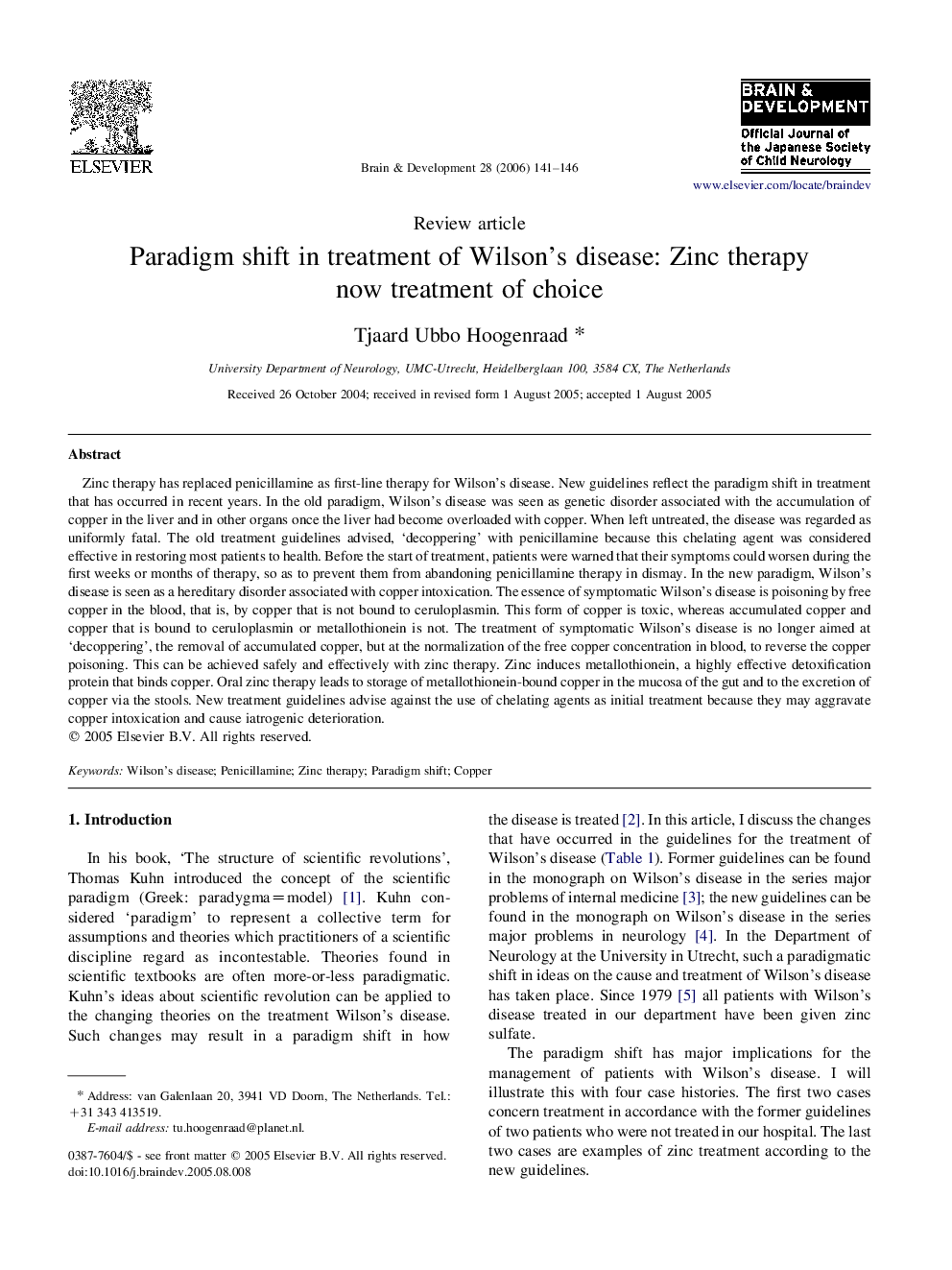| کد مقاله | کد نشریه | سال انتشار | مقاله انگلیسی | نسخه تمام متن |
|---|---|---|---|---|
| 3038617 | 1184480 | 2006 | 6 صفحه PDF | دانلود رایگان |

Zinc therapy has replaced penicillamine as first-line therapy for Wilson's disease. New guidelines reflect the paradigm shift in treatment that has occurred in recent years. In the old paradigm, Wilson's disease was seen as genetic disorder associated with the accumulation of copper in the liver and in other organs once the liver had become overloaded with copper. When left untreated, the disease was regarded as uniformly fatal. The old treatment guidelines advised, ‘decoppering’ with penicillamine because this chelating agent was considered effective in restoring most patients to health. Before the start of treatment, patients were warned that their symptoms could worsen during the first weeks or months of therapy, so as to prevent them from abandoning penicillamine therapy in dismay. In the new paradigm, Wilson's disease is seen as a hereditary disorder associated with copper intoxication. The essence of symptomatic Wilson's disease is poisoning by free copper in the blood, that is, by copper that is not bound to ceruloplasmin. This form of copper is toxic, whereas accumulated copper and copper that is bound to ceruloplasmin or metallothionein is not. The treatment of symptomatic Wilson's disease is no longer aimed at ‘decoppering’, the removal of accumulated copper, but at the normalization of the free copper concentration in blood, to reverse the copper poisoning. This can be achieved safely and effectively with zinc therapy. Zinc induces metallothionein, a highly effective detoxification protein that binds copper. Oral zinc therapy leads to storage of metallothionein-bound copper in the mucosa of the gut and to the excretion of copper via the stools. New treatment guidelines advise against the use of chelating agents as initial treatment because they may aggravate copper intoxication and cause iatrogenic deterioration.
Journal: Brain and Development - Volume 28, Issue 3, April 2006, Pages 141–146